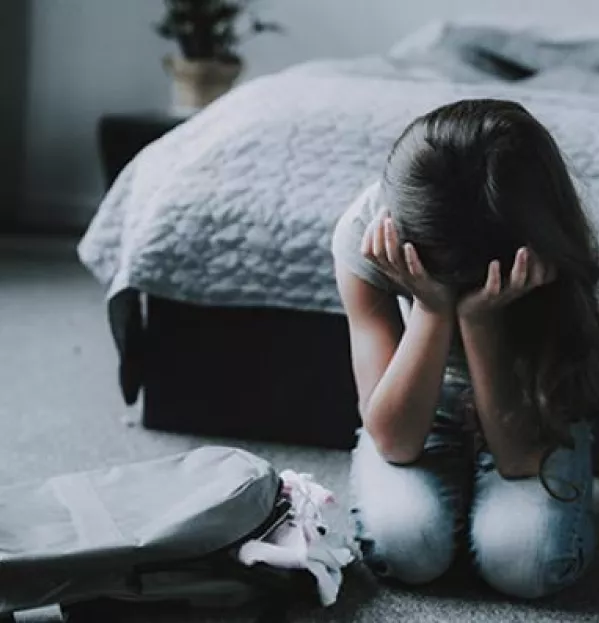How to support vulnerable children at Christmas

Not every child will be looking forward to Christmas. We’re all aware of this. The season can shine a spotlight on financial, domestic and wellbeing problems.
Not every adult will be looking forward to Christmas, either. There’s the pressure for everything to be perfect, with family visiting and bringing possible unresolved issues with them.
Alcohol consumption causes many of these issues to be considerably worse, and students are wise to this. You often hear stories of students spending Christmas day in their room, out of the way, trying to avoid confrontation.
But this shouldn’t stop us from wishing them a happy Christmas or asking about the break. This could be the child’s opportunity to let us know what their life is really like.
- Why we should teach spelling patterns to pre-readers
- Interoception: why it matters in your classroom
- How to develop a tutor-time metacognitive programme
If we don’t ask, it could feel like we don’t care. Some will put on that brave face and tell us everything is or was OK. Other students won’t even realise their home life isn’t the norm, especially younger students, and, without talking, how would they ever know?
Vulnerable children caught up in domestic abuse
I am particularly concerned about students living in domestic abuse environments during the Christmas break. I recently attended a domestic abuse conference and the numbers were frightening.
In my county, there were 13,740 reports to the police for domestic abuse in 2019. That’s 38 a day. In 80 per cent of these cases, children were living in the family home. And these are only the cases that are reported to the police. How many aren’t reported?
And this is why we should talk about Christmas with our students. Asking students what they are up to over the holiday can help to tackle the wider issue of how to stop things from being a secret.
If a child does disclose that they are worried about how Christmas is going to be, what can we do?
- You need to discuss this with your safeguarding team. Work out the risk, always putting the child’s needs first, but considering the whole family. Who do you need to share this with? And who is it safe to talk to? Do not presume that grandparents or family friends are on the child’s or victim’s side.
- If you feel you need to make a referral to child and adolescent mental health services, social services or the police, please don’t leave it to the last day (not always possible I know). If you do have to make one on the last day, make sure that someone from the safeguarding team is available to discuss the situation with this service. A rota may be needed.
- Be aware of what help you can offer. Clare’s Law, for example, allows a member of the public to make enquiries about the partner if we think they may pose a risk.
- If you are worried, check before the break what the pupil’s strategies are. Who will they talk to? Can you or your pastoral team help with this? Talking through an example sometimes helps the child to visualise a solution.
- Do not presume that you know what their Christmas will be like. I had one student who told me that Christmas was actually the easiest time because that parent drank so much for three days they slept through it and there were no arguments.
- Put on links to support services such as Childline on your out-of-office email. You can also give students these before the break. I have made cards with phone numbers and websites that I have found useful for them.
- Give yourself a chance to offload and share the burden as a team. It can be hard to enjoy your own festivities when you know students are struggling.
Ceri Stokes is assistant head (DSL) at Kimbolton School in Cambridgeshire. She tweets @CeriStokes
This was originally published on 19 December 2019
Register with Tes and you can read two free articles every month plus you'll have access to our range of award-winning newsletters.
Keep reading with our special offer!
You’ve reached your limit of free articles this month.
- Unlimited access to all Tes magazine content
- Save your favourite articles and gift them to your colleagues
- Exclusive subscriber-only stories
- Over 200,000 archived articles
- Unlimited access to all Tes magazine content
- Save your favourite articles and gift them to your colleagues
- Exclusive subscriber-only stories
- Over 200,000 archived articles
topics in this article



